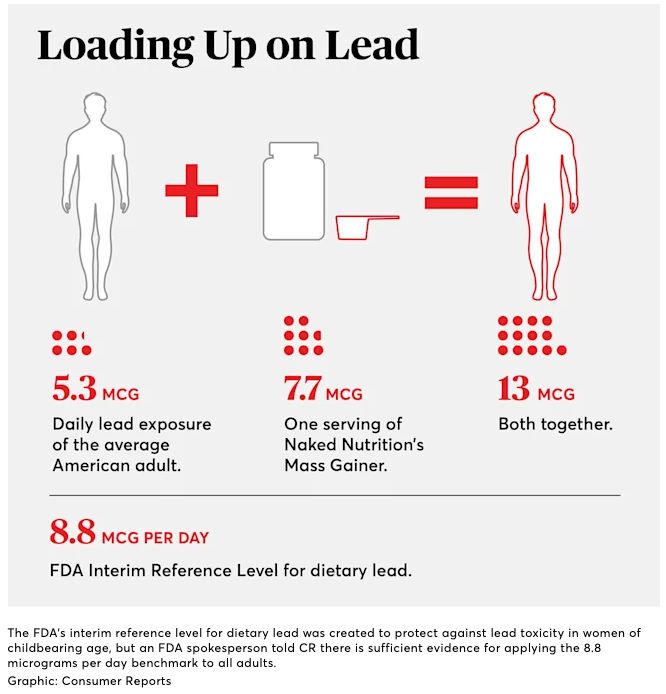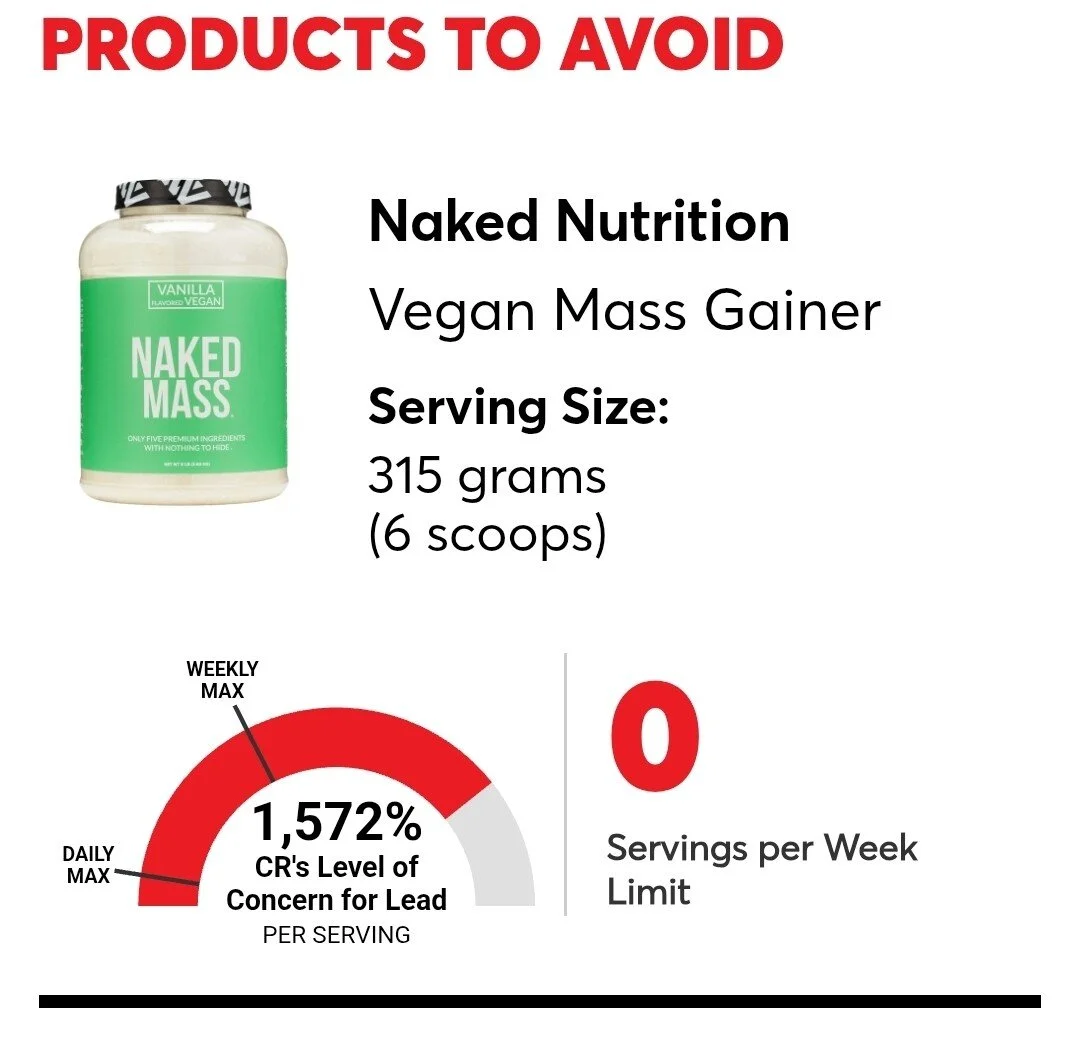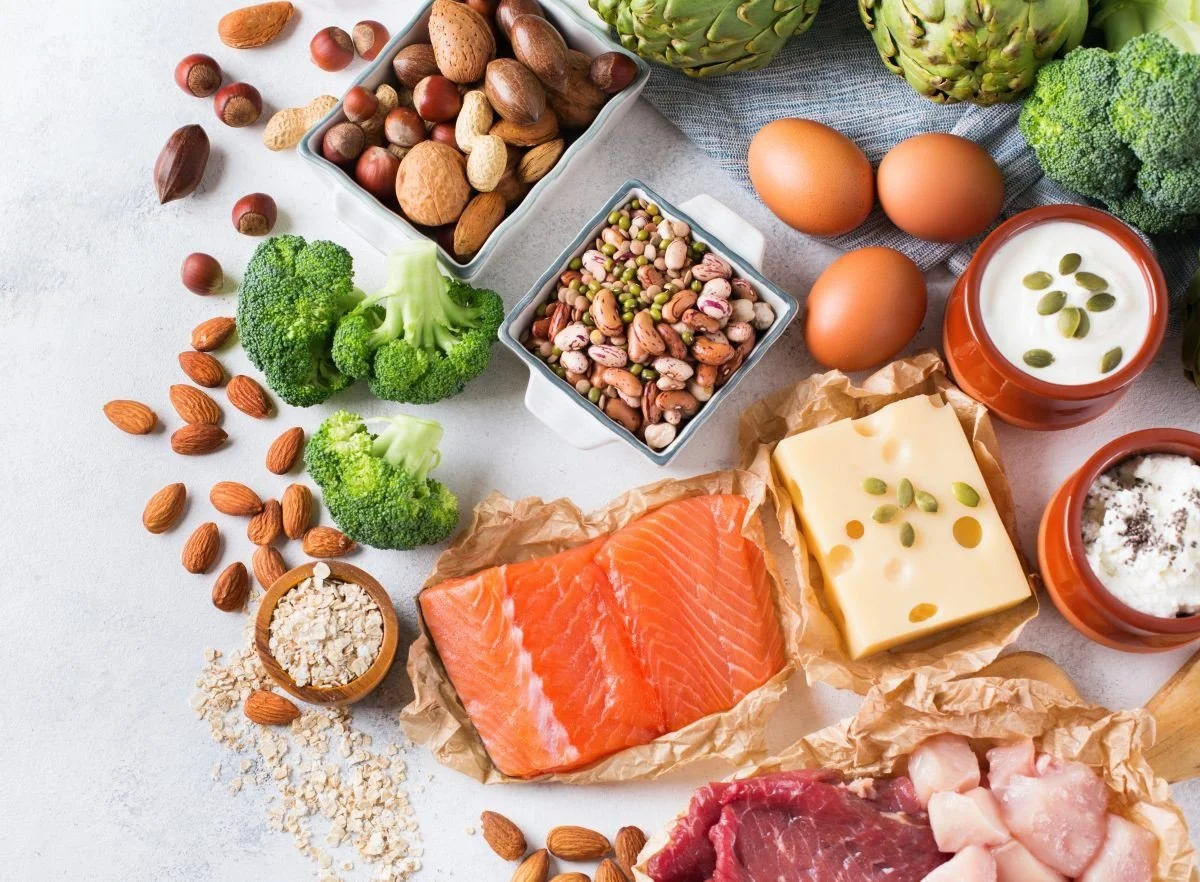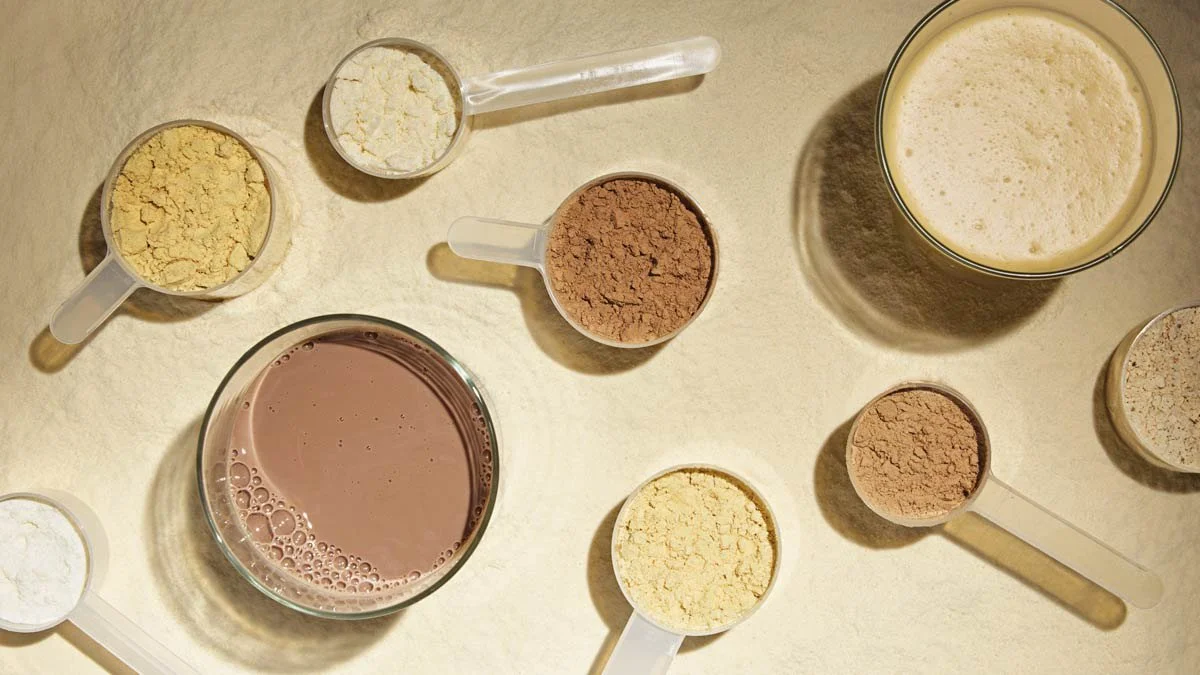Are Heavy Metals in Your Protein Powder?
You may have seen recent headlines about heavy metals in protein powders — and yes, this is a real issue worth your attention.
1. What’s going on:
· A new investigation by Consumer Reports tested 23 popular protein powders and ready-to-drink shakes and found that over two-thirds of them contained more than 0.5 micrograms of lead per serving (their reference “level of concern”).
· Plant-based protein powders had much higher lead levels on average — up to nine times as much as dairy (whey)-based powders. Heavy metals are naturally occurring in soil and water, and plants are especially prone to absorbing them.
· The regulatory context is important: the U.S. FDA says there is no known safe level of lead exposure. Meanwhile, Consumer Reports used California’s Proposition 65 standard of 0.5 µg/day as their benchmark to evaluate powders.
2. This is not the first research that has shown high contaminant levels in such products:
· A 2018 new study found that virtually all of the 134 protein powder products tested contained detectable levels of at least one heavy metal and 55 percent tested positive for BPA.
· A 2010 Consumer Reports' study detected arsenic, cadmium, lead and/or mercury in samples of all the 15 powders tested.
3. How bad is it to ingest lead?
· Health experts generally agree that there is no known safe level of exposure to lead. It can affect every organ system and can especially harm children by preventing them from absorbing minerals that their brains and nervous systems need to develop properly. Adults chronically exposed to lead can also suffer neurological damage, as well as kidney dysfunction and high blood pressure.
· But because lead occurs naturally in the environment, avoiding it altogether is impossible. In the US, people are most likely to be exposed through food and drinking water.
· The FDA sets guidelines for levels of lead exposure of 8.8 μg per day for women of child-bearing age. The threshold Consumer Reports chose was much lower—0.5 μg per day - set by the California Office of Environmental Health Hazard Assessment Proposition 65, which warns consumers of products that may cause cancer.
· “We go by the California standard because it is the most strict,” says Brian Ronholm, Consumer Reports’ director of food policy.
· What this means: If you use protein powder (especially plant-based) daily, you may be exposing yourself to cumulative lead burden — something that’s not typically labelled or regulated in supplements.
4. Other heavy metals:
· Two other products exceed CR’s level of concern for cadmium, classified as a probable human carcinogen by the E.P.A. One serving of Huel’s Black Edition powder contained more than double the level that public health authorities say may be harmful. Vega’s Premium Sport brand powder had enough cadmium that one serving would also put you just over that level.
· CR detected 8.5 micrograms of inorganic arsenic, a known human carcinogen according to the EPA, in a single serving of Optimum Nutrition’s Serious Mass powder, which is twice the limit scientists say is safe to consume daily.
5. Which products appear safest (so far) & how to pick:
· My science-based pick is Owyn Pro Elite High Protein Shake – showing 88% of CT’s level of concern for lead. And yes – it is available at CostCo! See my Instagram post HERE.
· If you want an Infographic of which specific brands to avoid and which to use, EMAIL ME for my FREE PDF of how each protein powder ranked (example below). If you want to go it alone and choose, here are some Pro Tips:
Do these:
· ✅ Look for third-party testing / certifications: Brands that publish Certificates of Analysis (COAs) for heavy metals (lead, cadmium, arsenic, mercury) are more trustworthy.
· ✅ Communicate with the brand: Ask for heavy-metal test results and sourcing details. Brands that respond openly are preferable.
· ✅ Check the source ingredient: Check what plant proteins are used (peas, rice, etc) and where they’re grown.
· ✅ Consider flavorings: Chocolate-flavored powders were found to have higher heavy-metal loads than vanilla or unflavored in some studies.
· ✅ Go with the conservative levels: Avoid any product with a Prop 65 warning on the label, which serves as a disclosure that products contain chemicals identified by California as potentially causing cancer, birth defects, or reproductive harm at certain exposure levels.
· ✅ Balance with whole-food protein sources: If you use protein powder, it needn’t be daily — alternate with meals that naturally supply protein. Beans, lentils, tofu/tempeh (for plant-based eaters), or lean animal-based protein if you consume it, are reliable ways to meet your needs without supplement risk.
6. Dr. Lauren’s Final Tips
· The recent news isn’t over-hyped: yes, many protein powders — especially plant-based — have concerning lead levels.
· Lead exposure risk is cumulative and there is no safe level, so limiting exposure is wise: heavy metals build up in the body over time, and even low-level daily exposure may contribute to long-term risk (especially for sensitive groups like pregnant women, children, or those with kidney issues).
· For plant-based folks who use protein powder, pick a product that demonstrates heavy-metal testing, uses clean sources, and has moderate servings.
· Don’t neglect whole-food protein sources. Even with a “safer” product, treat it as supplemental to a strong diet of whole-food proteins. Most adults don’t need protein powder to hit their targets.
· Don’t use the “organic” label as your only safety metric.
· Take action: It’s time for the FDA to protect the public and hold industry accountable by setting strong limits on lead in protein powders and shakes. Earlier this year, the FDA, for the first time, set guidelines for levels of lead in processed baby foods such as jarred fruits and vegetables.
**I work with all of my clients to balance their protein needs based on a PERSONALIZED approach. Email or message me so we can get started! Lauren@ConfluenceCoach.com







